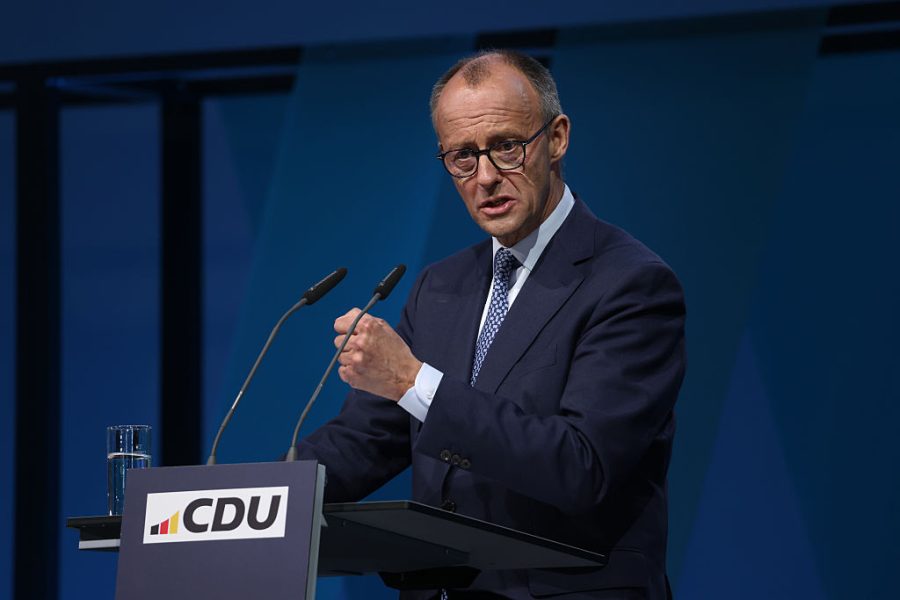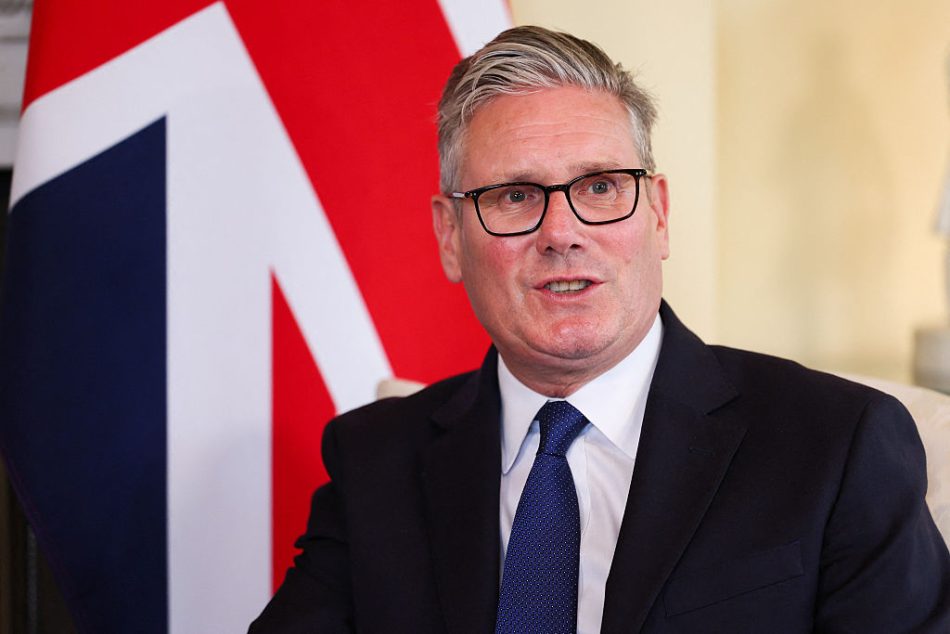Ever since President Trump started his tariff war earlier this month, the European Union’s response has been surprisingly clear. It should retaliate with tariffs of its own. It should focus on its own economic sovereignty. And it should make sure that targeted American industries feel the consequences. In other words, it should hit back, and hit back hard. And yet the incoming German chancellor Friedrich Merz has proposed a very different response: a grand Atlantic free trade pact. But can he convince Brussels to get on board?
It is certainly a break from the past for the man who next week will take over as Europe’s most significant politician. As he prepares to form his new government, the incoming German chancellor has proposed a free and open trading agreement with the United States. All the tariffs on both sides of the Atlantic would be taken down, and so would the regulatory barriers that make it harder for companies to trade across borders.
In effect, it would turn into a transatlantic single market. ‘If we can offer this to the Americans, then it could be a chance for us to create a great opportunity for the US and Europe out of the current crisis,’ he told a Christian Democrat party conference in Berlin.
Merz is of course completely right. If both the US and Europe are to have any hope of matching the growing economic power of China, then it would make a lot more sense for them to strengthen both their economies with free and open trade than to descend into a tit-for-tat tariff war that damages both sides. Indeed, the UK should be throwing its enthusiastic support behind Merz’s proposal. A free trade area covering both the US and Europe would be a huge boost for Britain’s economy.
The trouble is, it is not going to happen. The bureaucratic machine in Brussels won’t like it because it reduces its power too much.
It is not just that it would involve scrapping the protectionism in industries such as agriculture and cars that have been a core feature of the EU ever since it was founded. It would also mean curbing the power of Brussels to lay down rules for everything from product standards to monetary policy to deficits and even working hours and employment law. The EU has made huge claims for its role as a ‘regulatory superpower’ – even though it was never clear how that benefitted anyone apart from the regulators – and it won’t surrender that lightly.
As German Chancellor, Merz may well be the most powerful politician in Europe. But unless he is willing to dismantle the Brussels bureaucracy, his grand plan for free trade with America is dead on arrival.






Comments